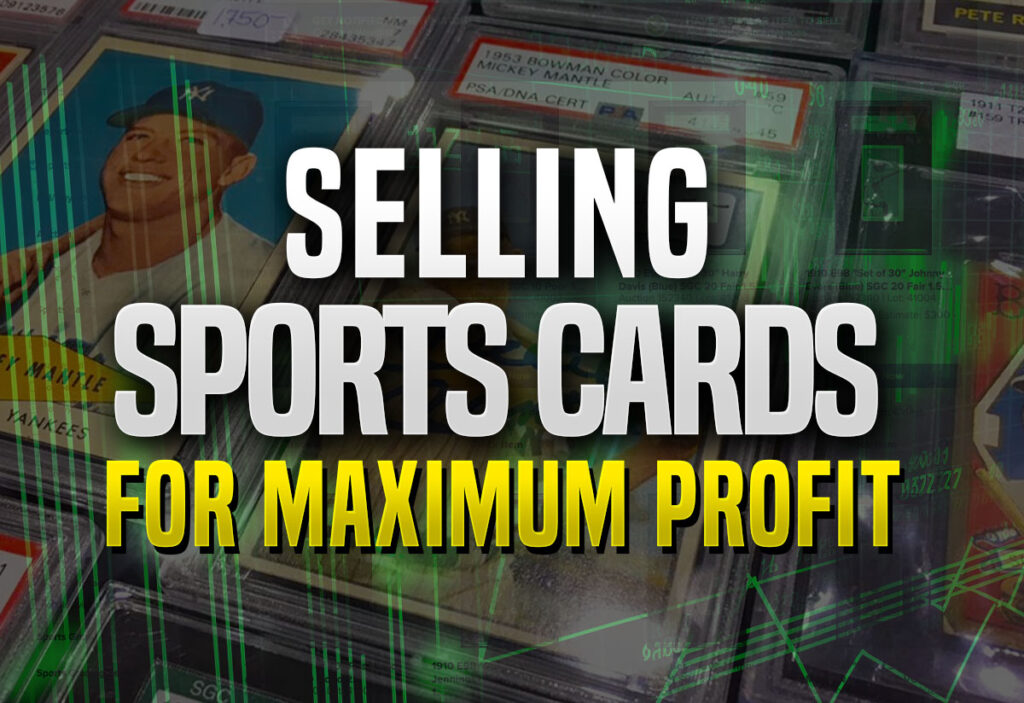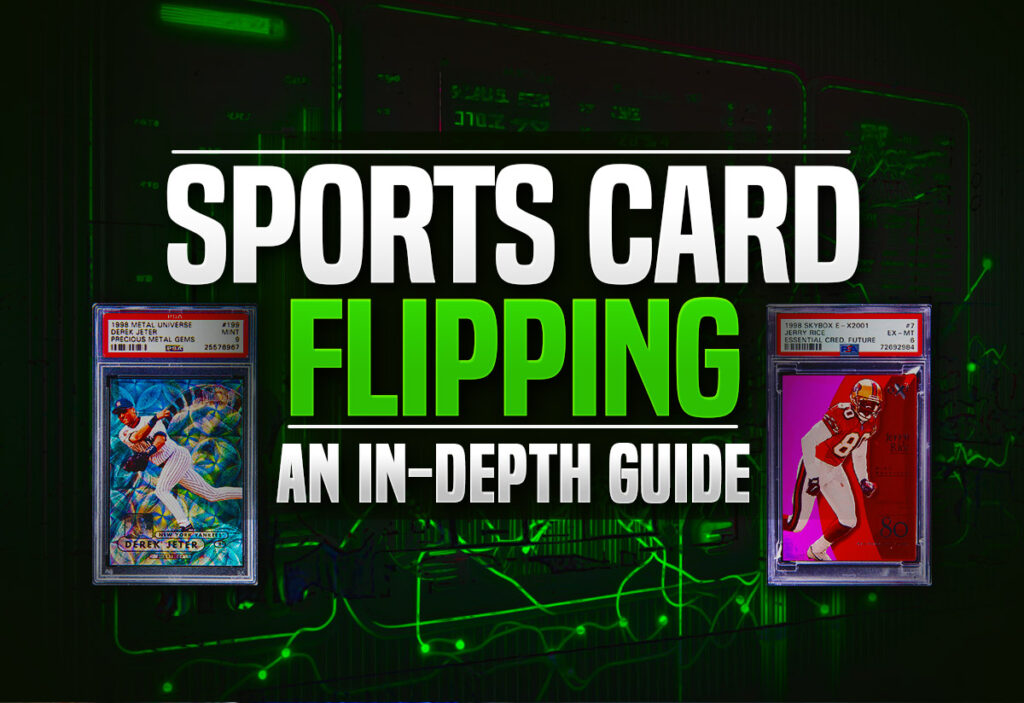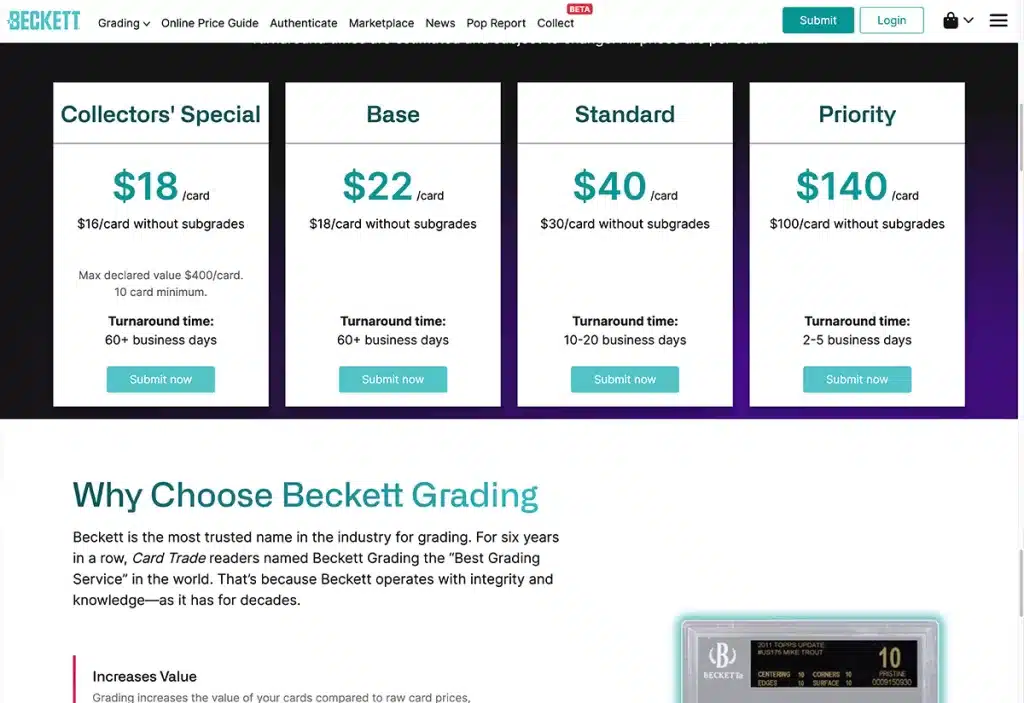For many, sports card collecting is more than just a hobby; it’s an investment. But like all investments, there comes a time when you might think about cashing in. Whether you’re wondering, “Are sports cards worth selling?” or seeking the best avenues to sell, this guide has you covered.
Why Consider Selling Sports Cards?
The sports card market has seen a remarkable resurgence, making certain cards highly sought-after commodities. As a collector, understanding when and how to capitalize on these assets can significantly boost your ROI.
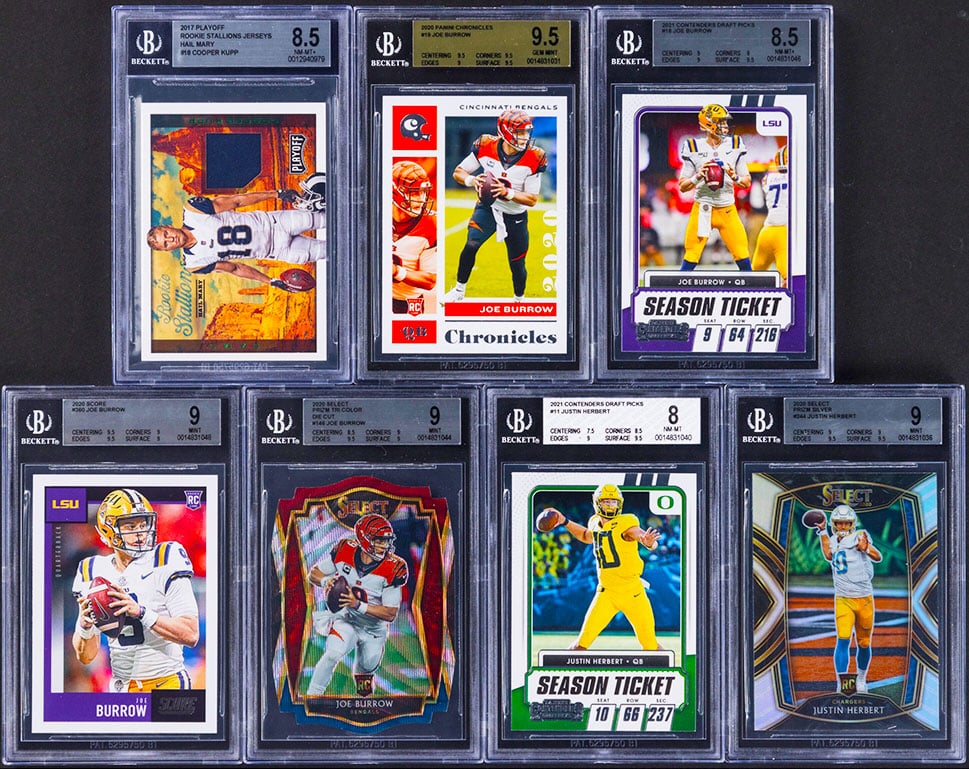
Best Places to Sell Sports Cards:
- Auction Houses: Renowned houses like Heritage Auctions, PWCC Auctions, and Goldin Auctions can showcase your prized cards to a global audience of serious collectors and investors.
- Online Platforms: eBay stands as a popular global platform, but ensures clear communication, high-quality images, and accurate descriptions for optimal results.
- Private Sales: Leveraging your network in the collector community can lead to quick, hassle-free sales.
- Consignment Shops & Local Card Stores: For those looking for a quick sale, local outlets can be convenient, though potentially less lucrative.
Are Sports Cards Worth Selling?
Absolutely! Cards, especially vintage or rare ones, can fetch astonishing prices. The Michael Jordan rookie card, for instance, has seen sales in the hundreds of thousands. But it’s essential to discern the value of your collection. Not all cards hold the same weight in the market, and research is pivotal.
How to Effectively Sell Sports Cards:
- Timing: Monitor market trends. A player’s retirement, Hall of Fame induction, or a significant sports event can all influence card demand.
- Selling Options: Weigh the benefits of bulk sales against individual listings. While bulk might be faster, individual sales can yield higher returns.
- Authentication: A graded card provides buyers with confidence in its authenticity and often results in a better selling price.
Which Sports Card Sells for the Most Money?
Rarity, condition, and demand drive prices. Cards like the 1952 Mickey Mantle or a mint condition Michael Jordan rookie card have sold for staggering amounts. It’s always a good idea to stay updated on auction results and market trends.
Selling sports cards is both an art and a science. It demands an understanding of the market, awareness of your collection’s value, and the strategic use of multiple selling avenues. With a well-planned approach, your sports card investments can yield impressive dividends.
Exit Strategies: Capitalizing on Your Card Collection
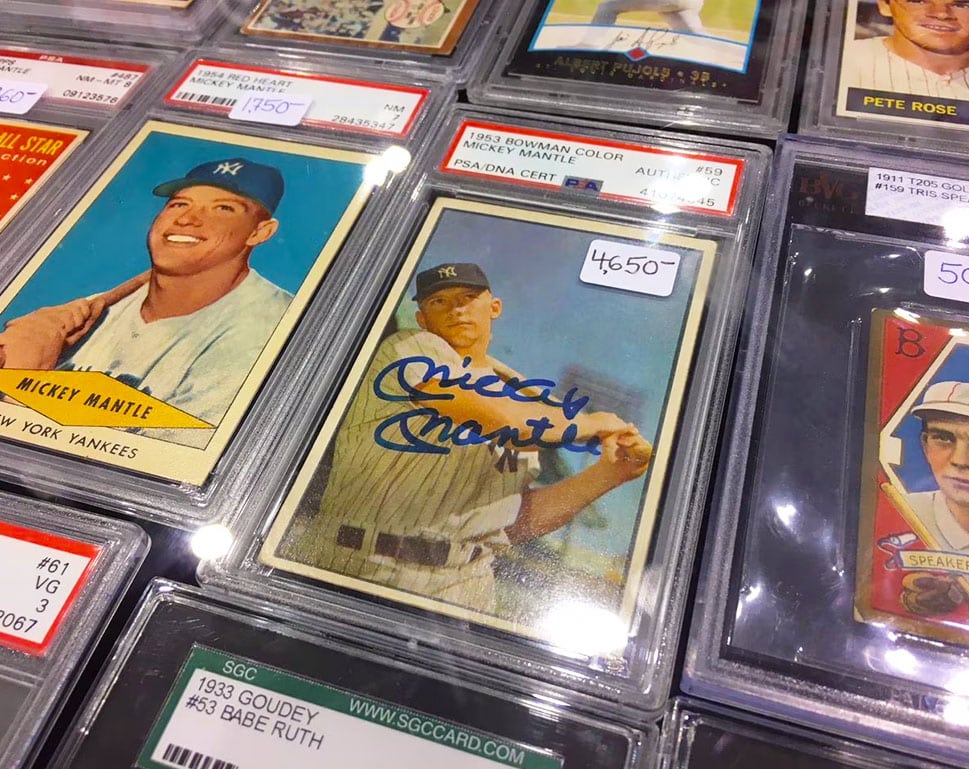
While collecting sports cards can be driven by passion, nostalgia, or the simple thrill of the hunt, there comes a time when one might consider liquidating their assets. Whether it’s to fund a significant life event, reallocate investments, or simply capitalize on the market’s high, having a well-thought-out exit strategy is crucial. Here’s how to ensure you get the most out of your collection when you’re ready to sell:
- Timing is Everything: Just like in stock market investing, it’s ideal to sell when demand is high. Monitor market trends, major sports events, or potential Hall of Fame inductions. For example, a player entering the Hall of Fame or a documentary feature can spike interest and demand for their cards.
- Bulk Sales vs. Individual Sales: If you possess a vast collection, selling cards individually might fetch you a higher total. However, it can be time-consuming and tedious. On the flip side, selling in bulk might be quicker but could mean settling for a lower total. Weigh the pros and cons based on your priorities.
- Engage Auction Houses: Prestigious auction houses like Heritage Auctions, PWCC Auctions, and Goldin Auctions can help you fetch top dollar for your rarest cards. They have a vast network of serious collectors and investors who are willing to bid aggressively for top-tier items.
- Online Platforms: Websites like eBay can be excellent platforms, especially if you’re keen on reaching a global audience. Ensure your listings are detailed, with high-quality images and accurate descriptions. Remember, transparent communication fosters trust.
- Grading and Authentication: If your card isn’t already graded, consider doing so before selling. A graded card not only assures potential buyers of its condition but often fetches a higher price.
- Private Sales: If you’re well-networked in the collector community, a private sale might be a viable option. It can lead to quicker transactions without any intermediary fees. However, ensure all dealings are documented for legal and financial transparency.
- Consignment Shops or Local Card Stores: These might offer a faster exit but be prepared for a potentially lower return. Such outlets need to mark up for their profit.
- Tax Considerations: Remember, significant sales might have tax implications. It’s always a good idea to consult with a tax professional to understand potential liabilities and any possible deductions.
In conclusion, the key to a successful exit strategy lies in thorough research, understanding market dynamics, and ensuring the authenticity and quality of your cards. Whether it’s a gradual offload or a one-time bulk sale, make decisions aligned with your financial goals and personal circumstances.
FAQs:
- How do I determine the value of my cards?
- Research recent sales of similar cards, consider grading your card, and engage with online sports card communities or forums for insights.
- Is grading my card worth the cost?
- For high-value cards, definitely. Grading assures potential buyers of the card’s condition and can significantly elevate its value.
- What factors influence the value of a sports card?
- Player reputation, card rarity, its condition, and current market trends play crucial roles in determining value.
Remember, while the thrill of collecting is unmatched, knowing how to effectively liquidate your assets in the sports card world can be equally rewarding.
From a young age, Matt dove deep into sports card valuation, turning to esteemed price guides like Beckett and Tuff Stuff. Eventually he extended to Pokémon, Magic: The Gathering, and Yu-Gi-Oh!. With a vision to sustain and nurture the hobby he loved, Matt established the ‘Graded Card Investor’ YouTube channel and website. He aims to foster a healthy community and offer invaluable insights to those entering the world of sports cards and TCGs. His depth of understanding, from the card market’s 2020 pinnacle to its 1990s valleys, is consistently fortified by meticulous research.
